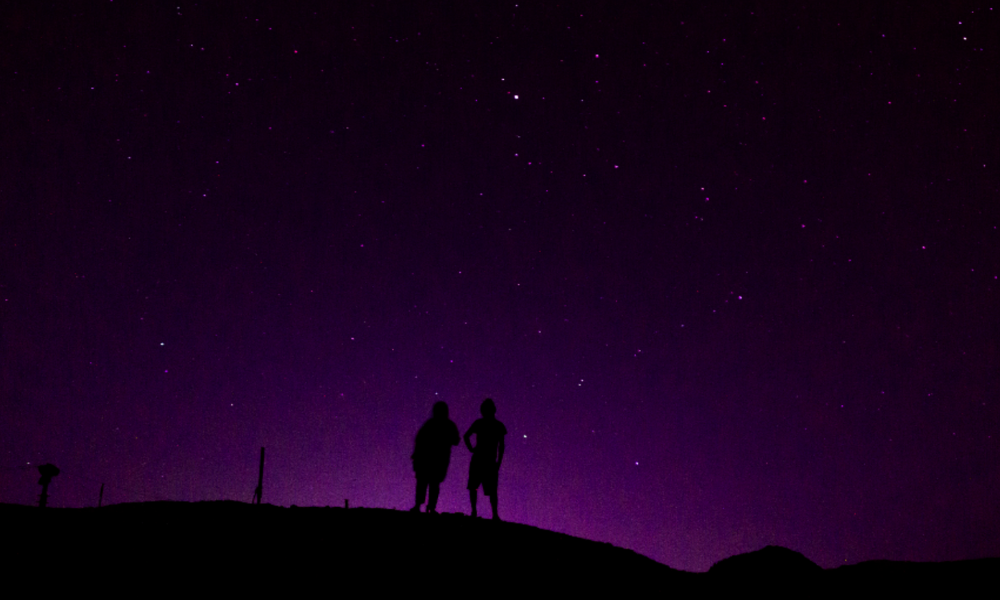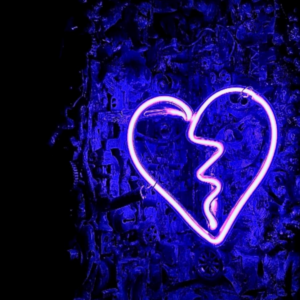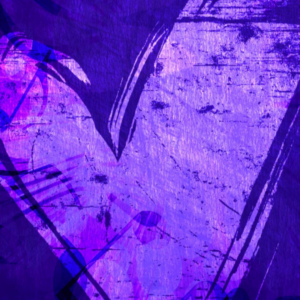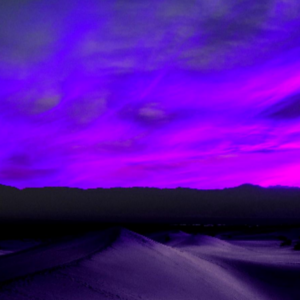Content warning: reference to sexual abuse, violence.
There is no Igbo word for cousin, so we call each other brother. You are two years my senior and you become the big brother I seek.
A fine body of water is spread out before us, water lilies and shrubs form uneven partitions on its top. The river’s surface twinkles as though glass pieces, catching light, are sprinkled over it. I am apprehensive. But I want to learn. I join you and the other kids and strip to my undershorts, put my feet into the cold sting of the clear river, matching on its floor bed, which is soft as marsh. We wade through the shallow section and the river crawls up from our feet to our waists.
You join the other kids and dive underwater, and you resurface in seconds and tear your way through the river like scissors through paper. Your adolescent muscles flex as you dash out long arm strokes, upsetting the riverside you’ve chosen to tame.
Water splashes above you and falls back in scattered droplets, stirring incessant ripples. You break your freestyle stroke, root your feet on the ground, and brush your palms over your face. Balls of water glisten on your woolly hair and slide in thin lines down your brown-skinned neck and teenage torso. You beckon me to join you, and I let myself go. I reiterate what I saw you do, and in no time, under your guidance, I see how easy it is to conquer the river.
You warn me of the hunger of the water, how it can never be tamed, how even the best of swimmers can still be swallowed up. You point at a region I should avoid. I take heed. You warn me of a fish. It is vile and could chop off my penis in its rage. You point at a region I should avoid. I take heed. You tell me a drowning man who struggles, drowns faster. And the best thing to do if you’re drowning is not to struggle but to swim the way you taught me. I take heed.
The river’s temperature has seeped into our bones. The day’s warmth has fallen off from the atmosphere, the blue sky smeared with streaks of orange rays deployed by the waning sun. We break out in goosebumps. Our bones rattle. My teeth clatter. We call it a day, wade out of the river and find our way home. Ashy little children with reddened eyes.
***
The bush speaks of languages we can understand if we pay enough attention to it. The leaves of trees are wind vanes. Their rattles, a barometer. The callings of birds, forecasts of a coming change in weather. The forest speaks of languages we can understand. All we need to do is pay enough attention.
The sun is hot up in the sky. Floating white clouds wander about. And we are adventurous kids seeking a fable in the forests of this village. The thin, fingerlike leaves of palm trees and the broad-shaped leaves of gmelina shroud the forest’s top, leaving perforations for the sun and sky to press through.
We are in shorts and polos, catapults slung over our necks, our pockets filled with fine pebbles we handpicked with care. We bring terror into the forest, daring all the dangers to try and stop us. Birds coo and fly away. I fix a stone into my catapult, stretch the band taut, and hold aim. I let it off, and the stone hurtles through air and chases after a bird. The bird dives and dodges my stone. My stone vanishes behind the weave of leaves and lands where I cannot tell. But I hear the plop of its landing on soil.
You call on my attention and I respond. You point to a strange thing lying on the floor. You tell me it belonged to a snake. Snakes moult often, take off old skin and leave it behind, look newer and finer than they were before. You warn me of the bush paths. Of the certain hunger they hold. Of poisonous snakes lying in wait for ambling prey. Of hunters’ traps hungry for a catch. I take heed, watch closely before I place my foot.
We walk down the paths of the forest. Leaves and twigs cry to the soles of our slippers. We crunch them.
The air smells of a certain purity, a certain flavor we do not get outside of here. The abundance of oxygen. The scented mix of rotten fruits with blooming petals.
We spot a cashew tree up ahead and break our walk. You glide up the tree, slide through its stem and branches like you are a snake crawling up a pole. Eager to free my feet from land, I join you. You tell me to avoid the dried-up branches. They could snap and, against my will, take me back to the ground. I take heed. You tell me to avoid the green fruits. They could leave itches on my tongue and irritate the back of my throat. I take heed. You tell me not to chew on the seed hanging, like a head, above the cashew fruit. They are corrosive and could set fire to my lips, burn out the soft and tender skin. I take heed.
We pluck the yellow ones and toss them down, eat some while we are up on the tree, straddling a branch, legs dangling in the wind. The scent oozing from the fruits wraps us in its sweetness. Our nostrils fill. Our tongues satiate. We descend the tree with abundant cashew fruits in wait on the floor. We empty our pockets of the stones and stuff them with the fruits. We walk through the bushes and find our way home. Adventurous little children smelling of sweetness.
***
Our bodies are beginning to take on a new form, the manly V-shape getting more visible by the day. We’ve grown pubic hairs and begun to understand how jiggly breasts could excite the eyes. We pay more attention to our grooming, our dressing, and outward appearance.
It is evening and we stroll into the heart of the village. We watch the long stretch of asphalt bristling with bodies as it always does when it is Christmas. The girls our age are on the road too, their bodies also taking a new form. Rounded hips widened the sides of their colorful skirts, trousers, dungarees, and gowns. They walk through the bustling bodies, knocking off the air with the sways of their hips, exciting our eyes with the jiggles of their breasts. They give us welcoming eyes, and we return flirting smiles.
I am one of the returnees. The ones who stay in the city and visit only at the year’s end. I get special treatment by virtue of my scarcity, or perceived foreignness. And you’re the celebrity, the one who organizes a dance show where your dance group holds the attention of the masses for two long hours with steady, intricate body movements. In return, they give claps and cheers, showering your group with money. And as a bonus, you earn the attention of the ladies.
We walk up to the girls. You’re fluent in the dialect and have the savoir-faire, so I fold myself behind your tongue and watch you rap your way into her heart.
I smile at the ones who smile at me. But that is as far as I go. A smile. I hear you went farther. You wayfarer of hearts.
***
Years glide by and a crisis erupts in our village. A crisis that keeps me in perpetual exile. And while I await the examination that will qualify me for university, I consider coming back home to you, stay away from urban life for a while. I consider coming to forge more memories with you—the boredom that comes with doing nothing. But staying at home in the city is the hand that strangles me. I need fresh air. I need to breathe in the deep green of freshly cut grass and the air escaping from bubbles bursting above a body of water.
But the crisis keeps me away, troubles my teenage heart. I hear boys are falling off the face of the earth like shaved beards.
I hear you are still there. There, where taking a casual stroll has become a threat to life. There, where mothers are raped in farms, where boys with bloodshot eyes parade with might. There, that has earned the federal government’s attention.
I hear military men have been deployed in heavy numbers. Fighter helicopters take hold of the sky. Children who do not know the language of crisis cower behind their mothers’ wrappers. Mothers and fathers make exit plans for their offspring. I hear plantains do not wait for their owners to come to take them before they follow thieving hands. Goats tied to the backyard at night wake up in the belly of the boys with bloodshot eyes at noon. Even cocks don’t run around chasing a hen to mate. Everything lives in perpetual fear. A daily consciousness of imminent death.
I hear the boys now live in bushes. I hear they’ve run mad, always wanting to steal or kill something. I hear the land is cursed.
The military men are out scouting for the boys. Combing bushes. Untangling hideouts. Killing them on sight. I hear the presence of the military men brings comfort to some of the villagers, stitching a small hope of safety within their torn hearts.
I hear it is evening and you arrive home hungry, and while the soup simmers in the pot, you walk towards the Catholic church which is about two minutes away from your house, to charge your phone, but a group of boys stops you midway.
The day has lost its light. And everything happens under the surveillance of the moon.
I hear the boys parade you past buildings, past paths, into the bushes. They ask you questions you know nothing about. I hear you keep begging them, pleading they let you go. Among them is someone you know. Someone you would consider family. I hear they won’t listen to your words. And with your hands in the air, mouth pleading for life, eyes clouded with tears, one of them cocks his gun and fires a shot your way. The bullet hurtles towards your body, meets the side of your ribs, tears through your flesh, and cracks a bone.
You fall with your back to the floor. Your head bent to the side. And you lie there from the early hours of that night, the liquid of life leaking out through the side of your stomach, till daybreak when you are found with all your warmth gone.
I hear this time you didn’t find your way home. And wherever you left to you went alone.
I hear they took a picture of your body sprawled on the path where you died. I hear it is gory and stirs an unforgiving rage in hearts. A graphic violent image. Of ruptured flesh. Of blood-soaked soil. Of lifeless eyes.
I hear rumor peddlers took your name on their heads and hawked around the village, selling stories, saying you were one of the boys who lived in bushes. I hear the peddlers of rumors returned to buy back what they had sold, apologizing that they had attempted to taint the name of an innocent dead boy. I hear your burial date has been fixed. The whole family is down and dressed in sacks, ash crowning their forlorn heads.
I hear all these things, but I refuse to dwell, refuse to see your picture, refuse to see you walk out of the world, descend into the six-foot deep hole—alone. I make a clearing in my chest, sit by myself, and cry. I hope that with your old skin gone, you’ve moulted into a newer and finer you.
I am head deep in grief. And it is, like the river, weighty and cold. My skin tingles, breaks out in goosebumps, and I become, once again, a boy trying to conquer a body of water. But I see no one to guide me this time. I do not swim, I do not conquer. I see that I am drowning but I do not struggle, because a drowning man who struggles drowns faster.




